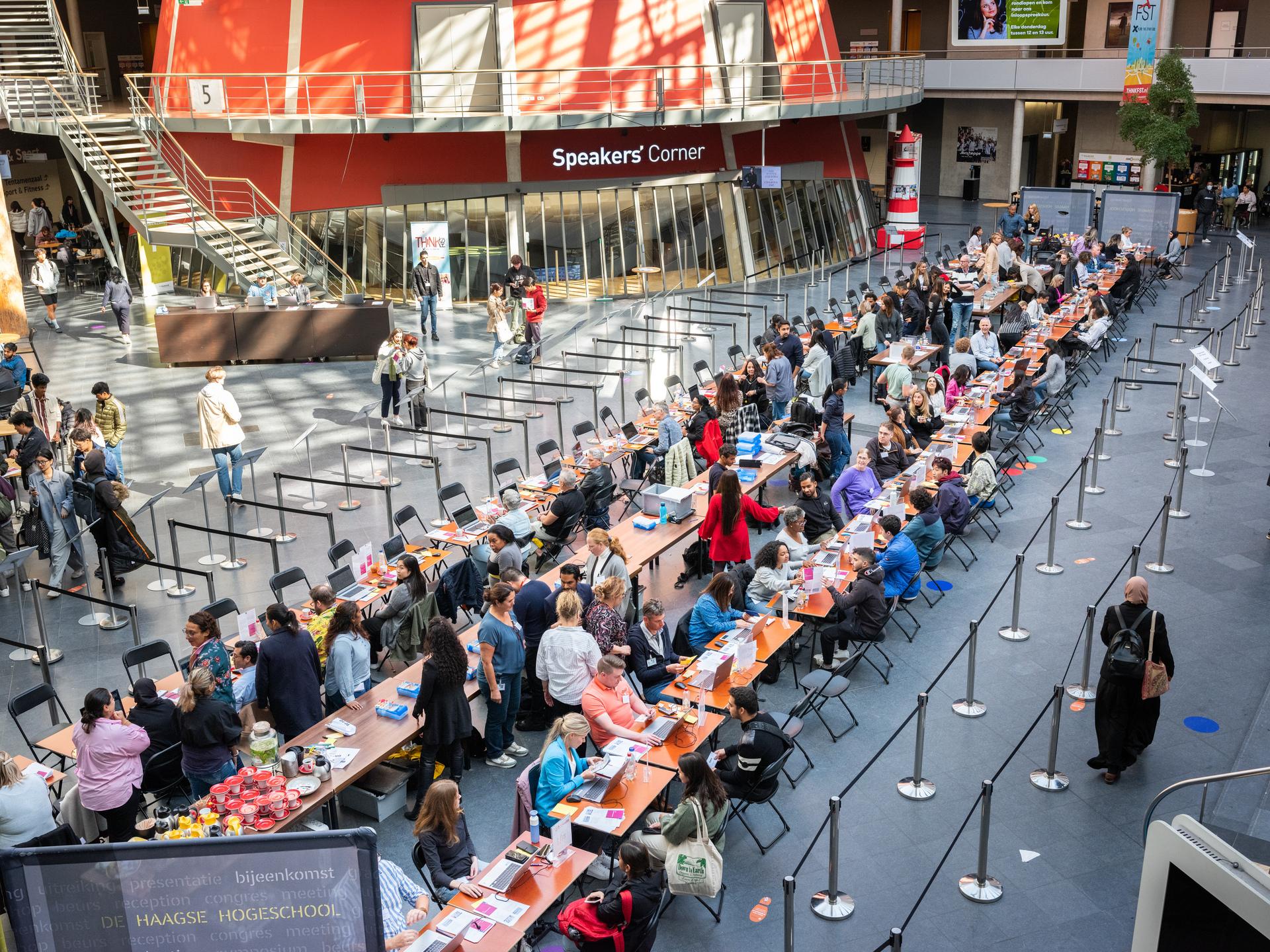The 28 April 2025 edition of the Business Newsletter is online
The latest Business Newsletter is available for recognised sponsors and concerns employment.
Last Saturday, thousands of international students came to The Hague University of Applied Sciences to collect their residence documents from the Immigration and Naturalisation Service (in Dutch: Immigratie- en Naturalisatiedienst or IND). This Saturday, 24 September, a second group of students can go there. To study in the Netherlands, students from outside the EU need a residence permit. It is advantageous for students as well as the IND to organise the issuance of these residence documents centrally
This year, 16,630 applications for a student permit were submitted to the IND up until July. This is an increase compared to 2021. Especially students from China, India and America come to the Netherlands to study. Most applications by far are received in the run-up to the new academic year. In a few months, the IND assesses all these requests, which are submitted by the educational institutions. At that point, the educational institutions have already assessed in part whether the student meets the conditions to obtain right of residence. Next, the IND assesses and decides within two weeks whether someone is really allowed to come to the Netherlands. Almost everyone will be granted residency.
After granting residency, the IND issues a residence document which allows a student to demonstrate that they are allowed to stay in the Netherlands. This year, the issuance of these residence documents has been organised centrally in The Hague on two days. This is where the large majority of students from outside the EU are coming.
People who want to collect a residence document from the IND have been confronted with increasing waiting times in recent months. Merel Hekker, IND services manager: ‘To make sure that students will still obtain their residence document in September, we have adopted a different approach. Central issuance allows us to deploy our staff as effectively as possible and prevent others from having to wait longer because of the student peak.’

The Hague University of Applied Sciences has offered to facilitate the central issuance at its main location, close to NS Train Station Hollands Spoor. To organise this, we worked together closely with the 26 educational institutions involved. For example, students were divided between the two Saturdays. Each day has seven time slots of 1 hour. The educational institutions are individually responsible for a distribution of their students.
The Hague University of Applied Sciences is making sure that enough facilities are available to make the days run smoothly. Marlies Rexwinkel, team leader of Registrations and International Office at The Hague University of Applied Sciences: ‘The Hague University of Applied Sciences has new international students every year. We know from experience how much time and energy it takes to find out how everything works at the university and in the Netherlands. It eases their burden if they can have their residence document quickly so that they can focus on their studies and fellow students. After all, that is why they are here. If this allows us to help as many international students as possible start to their time here in the Netherlands smoothly, we are happy to play our part.’
For many students from outside Europe, collecting their residence document in The Hague is a nice first introduction to the royal city. Many of them left The Hague University of Applied Sciences deeply satisfied with the service that had been offered this way. They said they received quick and pleasant service from IND staff and are looking forward to their stay in the Netherlands.